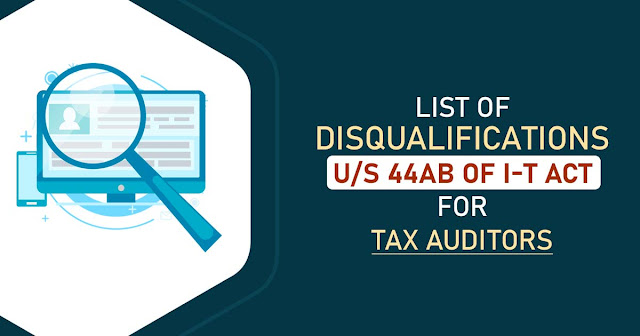Tax auditors play a crucial role in verifying the precision and openness of financial records when it comes to financial governance. They maintain records for individuals, businesses, trusts, and institutions. However, to uphold the integrity of the auditing process, it is vitally important to establish explicit guidelines and disqualifications for individuals who serve as income tax auditors.
This article will delve into the specific disqualifications in accordance with the Act.
Certified Chartered Accountant with an Active Practice Certificate
The Income Tax Act has some qualification criteria for tax auditor eligibility. An individual must meet the definition of a chartered accountant as outlined in clause (b) of sub-section (1) of Section 2 of the Chartered Accountants Act, 1949. Additionally, it is necessary for them to hold a valid practice certificate under Sub-section (1) of Section 6 of the Chartered Accountants Act, 1949. The eligibility criteria under the Act make sure that only qualified professionals possessing the necessary credentials can perform the tax audits.
Exclusions for Specific Entities
(A) Ineligibility for Companies
In the case of companies, the tax auditor cannot be an individual who is disqualified from serving as an auditor for that company under the provisions of sub-section (3) of Section 41 of the Companies Act, 2013. This provision guarantees that the tax auditor for a company meets certain criteria set by Company Law.
- For other entities, including firms, associations of persons, Hindu undivided families, the assessee, or any partner of the firm, member of the association, or family member cannot be appointed as the tax auditor.
- Trusts or institutions cannot appoint any individual outlined in clause 3 (a), (b), (c), and (cc) of sub-section (3) of Section 13 as their tax auditor. This includes the author of the trust, individuals who have made substantial contributions to the trust, family members of the HUF author of the trust, trustees or managers, relatives of the aforementioned individuals, and any entity in which they hold significant interests.
- For individuals not falling into the above categories, the tax auditor must possess the competence to verify the return under Section 139, following the provisions of Section 140.
- As per Sub-clauses 1, 2, and 3, the Act prohibits the appointment of any relative of individuals as tax auditors.
- Officers or employees of the assessee are not eligible for tax auditor.
- Individuals who are partners or employed by such officers or employees, are disqualified for tax auditor.
- Individuals, as well as their relatives are disqualified if they have specific financial associations with the assessee. These associations encompass owning securities or stakes, having outstanding debts to the assessee, or offering assurances or collateral for the debts of third parties to the assessee.
- Individuals who have business relationships of a nature with the assessee as per the law are also barred from serving as tax auditors.
- Furthermore, individuals who have been found guilty of a tax fraud-related offense by a court and have not yet served ten years from the date of their conviction are not eligible to serve as tax auditors.
Final Thoughts
The Income Tax Act of India has implemented several criteria for disqualifications to guarantee that tax auditors have the necessary qualifications, independence, and ethical standing to competently execute their duties. These disqualifications are devised to maintain the honesty and precision of financial reporting, thereby bolstering the integrity of India's tax framework. Taxpayers can have assurance that adept professionals, adhering to the stringent criteria set out in the Act, meticulously review their financial records.


Comments
Post a Comment